Filter by
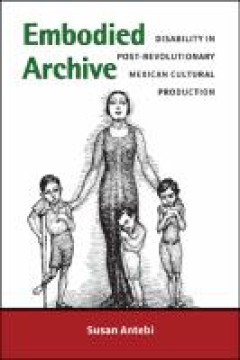
Embodied archive: disability in post-revolutionary Mexican cultural production
"Embodied Archive focuses on perceptions of disability and racial difference in Mexico’s early post-revolutionary period, from the 1920s to the 1940s. In this period, Mexican state-sponsored institutions charged with the education and health of the population sought to strengthen and improve the future of the nation, and to forge a more racially homogeneous sense of collective identity and hi…
- Edition
- -
- ISBN/ISSN
- 9780472902422
- Collation
- 283 p.: ill.
- Series Title
- Corporealities: Discourses Of Disability
- Call Number
- 305.908097209041 ANT e
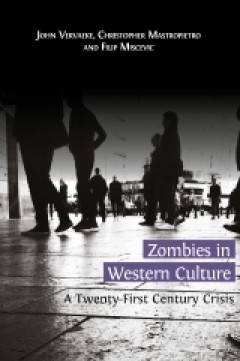
Zombies in western culture: a twenty-first century crisis
Why has the zombie become such a pervasive figure in twenty-first-century popular culture? John Vervaeke, Christopher Mastropietro and Filip Miscevic seek to answer this question by arguing that particular aspects of the zombie, common to a variety of media forms, reflect a crisis in modern Western culture. The authors examine the essential features of the zombie, including mindlessness, ugl…
- Edition
- -
- ISBN/ISSN
- 9781783743308
- Collation
- viii, 93 p. : ill. : ind. ; 24 cm
- Series Title
- -
- Call Number
- 398.21 VER z
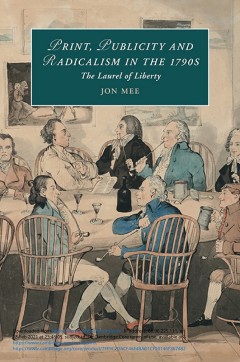
Print, publicity, and popular radicalism in the 1790s : the laurel of liberty
Jon Mee explores the popular democratic movement that emerged in the London of the 1790s in response to the French Revolution. Central to the movement's achievement was the creation of an idea of 'the people' brought into being through print and publicity. Radical clubs rose and fell in the face of the hostile attentions of government. They were sustained by a faith in the press as a form of 'p…
- Edition
- -
- ISBN/ISSN
- 9781316459935
- Collation
- xiii, 272p. : ill.
- Series Title
- -
- Call Number
- 302.232094109033 MEE p
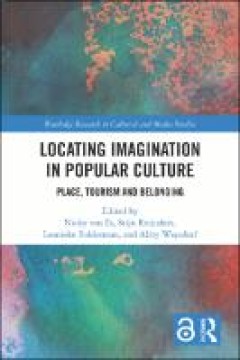
Locating imagination in popular culture : place, tourism and belonging
Locating Imagination in Popular Culture offers a multi-disciplinary account of the ways in which popular culture, tourism and notions of place intertwine in an environment characterized by ongoing processes of globalization, digitization and an increasingly ubiquitous nature of multi-media. Centred around the concept of imagination, the authors demonstrate how popular culture and media are beco…
- Edition
- -
- ISBN/ISSN
- 9781000223835
- Collation
- XIV, 319 p.
- Series Title
- Routledge Research in Cultural and Media Studies,
- Call Number
- 306 LOC l
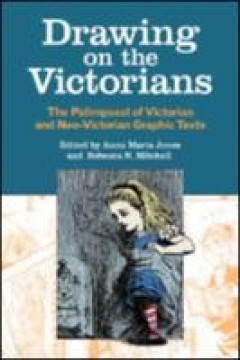
Drawing on the Victorians : the palimpsest of Victorian and neo-Victorian gra…
Late 19th-century Britain experienced an explosion of visual print culture and a simultaneous rise in literacy across social classes. New printing technologies facilitated quick and cheap dissemination of images—illustrated books, periodicals, cartoons, comics, and ephemera—to a mass readership. This Victorian visual turn prefigured the present-day impact of the Internet on how images are p…
- Edition
- -
- ISBN/ISSN
- 9780821445877
- Collation
- XIV, 382 p.
- Series Title
- -
- Call Number
- 700.94109034 DRA d
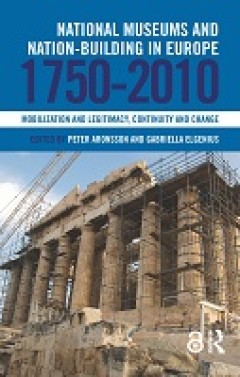
National museums and nation-building in Europe 1750-2010 : mobilization and l…
Europe’s national museums have since their creation been at the centre of on-going nation making processes. National museums negotiate conflicts and contradictions and entrain the community sufficiently to obtain the support of scientists and art connoisseurs, citizens and taxpayers, policy makers, domestic and foreign visitors alike. National Museums and Nation-building in Europe 1750-2010 a…
- Edition
- -
- ISBN/ISSN
- 9780415853965
- Collation
- XIII, 212 p.
- Series Title
- -
- Call Number
- 069.094 NAT n
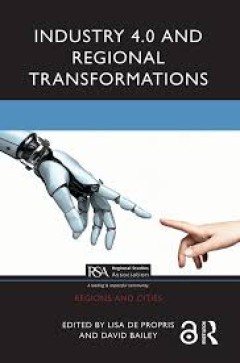
Disability studies and Spanish culture : films, novels, the comic and the pub…
Disability Studies and Spanish Culture is the first book to apply the tenets of Disability Studies to the Spanish context. In particular, this work is an important corrective to existing cultural studies of disability in Spain that tend to largely ignore intellectual disabilities. Taking on the representation of Down syndrome, autism, alexia/agnosia as well as childhood disability, its chapters…
- Edition
- -
- ISBN/ISSN
- 9781846318702
- Collation
- IX, 194 p.
- Series Title
- Representations: Health, Disability, Culture and Society
- Call Number
- 305.90840946 FAS d
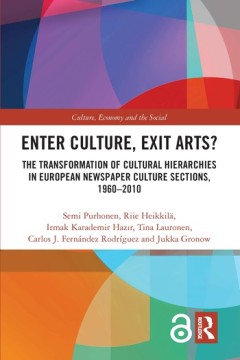
Enter culture, exit arts? : the transformation of cultural hierarchies in Eur…
Key debates of contemporary cultural sociology – the rise of the ‘cultural omnivore’, the fate of classical ‘highbrow’ culture, the popularization, commercialization and globalization of culture – deal with temporal changes. Yet, systematic research about these processes is scarce due to the lack of suitable longitudinal data. This book explores these questions through the lens of a…
- Edition
- -
- ISBN/ISSN
- 9781138740556
- Collation
- xvi, 255p. : ill.
- Series Title
- -
- Call Number
- 306.094 ENT e

Fanfiction and the author: how fanfic changes popular cultural texts
Through a rigorous quantitative/qualitative discourse analysis - never before undertaken in relation to online fanfiction and its reception - Fanfiction and the Author demonstrates how fanfic relating to Sherlock, Game of Thrones and Supernatural works to change and consolidate the discourses of masculinity, authority, and authorship created through these TV texts. As a result, this book innova…
- Edition
- -
- ISBN/ISSN
- 9789089649959
- Collation
- 233 pages : illustrations ; 24 cm
- Series Title
- Transmedia (Amsterdam, Netherlands)
- Call Number
- 791 FAT f
 Computer Science, Information & General Works
Computer Science, Information & General Works  Philosophy & Psychology
Philosophy & Psychology  Religion
Religion  Social Sciences
Social Sciences  Language
Language  Pure Science
Pure Science  Applied Sciences
Applied Sciences  Art & Recreation
Art & Recreation  Literature
Literature  History & Geography
History & Geography